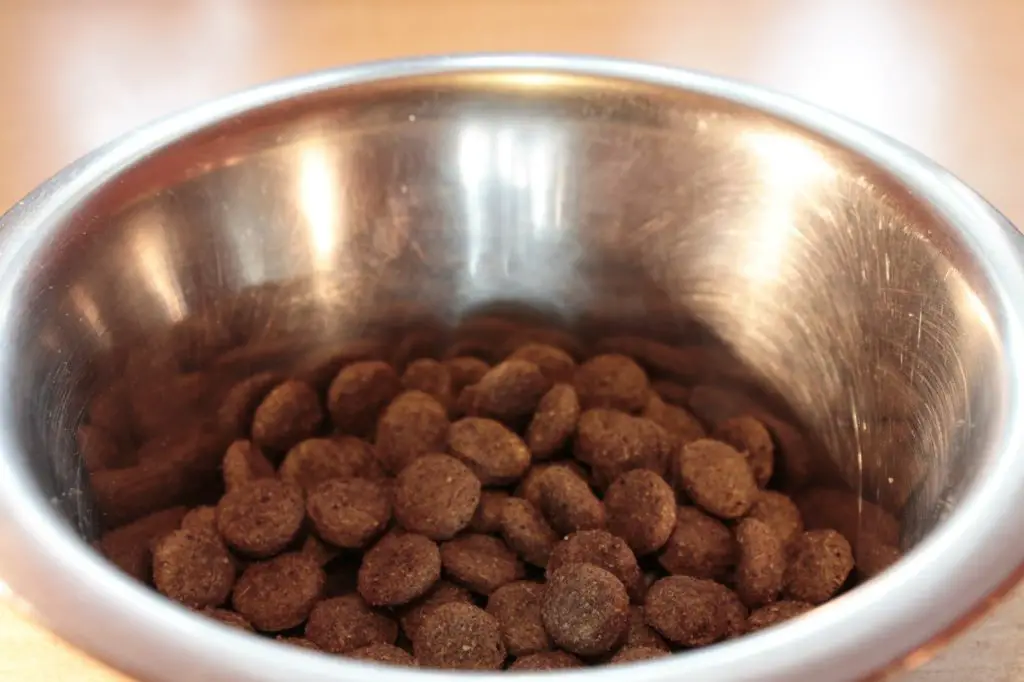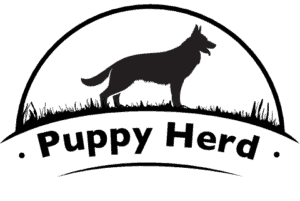With the popularity of veganism increasing, it is not surprising that some vegan pet owners are considering putting their dogs on a vegan diet. As a German Shepherd owner, you may wonder if this special breed can thrive on a vegan diet, given their known health-related conditions.
As an omnivore, your German Shepherd can be vegan. However, knowing that this highly developed breed is prone to several health ailments, it’s advisable to ensure that you act on your veterinarian’s advice before you initiate a vegan diet. Any diet should consider your dog’s age and physical health and be nutritionally balanced to meet the animals needs.
As vegan food for dogs is, by definition, meat-free, it is natural that you may be dubious as to whether this diet would satisfy all the nutritional needs of your German Shepherd. We hope to answer all lingering doubts you may have as to whether German Shepherds can be vegan in this article to enable you to make an informed decision whether to go that route or not.

What To Look For In A Diet For German Shepherds
As German Shepherds grow, their calorie requirements increase from 500 calories per day as a puppy to over 2000 calories a day for an adult. The diet should start from the puppy stage to ensure that they grow into healthy, energetic dogs.
German Shepherds require the following in their diet:
- Protein and vitamins
- Digestible fiber
- Fat at levels under 8%
- Carbohydrates in limited quantities, below 2%
- Fatty acids and trace elements of minerals
The high energy needs of German Shepherds are supported by fat and protein. Protein is a key requirement for muscle development and strength, and a balance of essential fatty acids and vitamins is particularly important in keeping your German Shepherd in good condition.
It must be stressed that the composition of the diet must be carefully selected to ensure that it’s agreeable with the sensitive digestive system inherent to the breed.
Are German Shepherds Suited To A Vegan Diet?
Owners bear a distinct responsibility for their dog’s nutrition, as they live in our world and not in the wild. Choosing to substitute meat and all products of animal origin for vegetables is a bold one and could jeopardize their health if their diet is not delivered judiciously.
Owners who would like to put their dogs onto a vegan diet are likely to do so over ethical concerns and may like to carry their own beliefs through to their pet’s eating habits. While, in nature, the likes of wolves and jackals kill for meat, domesticated dogs are different. They are omnivores as opposed to wolves, which are strictly carnivores.
Compared with wolves in the wild, the genetic evolution of dogs has favored their ability to generate more starch-digesting enzymes. This points to their ability to digest non-meat products easily.
The order Carnivora, into which dogs fall, includes many other omnivores like pandas, bears, and raccoons, all of whom can digest starch.
Therefore, you may assume that German Shepherds could well be suited to a vegan diet. However, with this breed, it’s not as simple as it seems.
German Shepherds have many potential health problems that could be exacerbated by eating the wrong food, make sure you carefully consider these before putting them on a vegan diet. (Source)
While there are many instances where dogs on a vegan diet have lived for 20 years or longer, the average lifespan of German Shepherds is 11 years. This is generally shorter than many other breeds due to their susceptibility to hip dysplasia.
This normally leads to a weakening of the dog and results in a general decline in health. For further reading, see “Is 12 Old for a German Shepherd?”
A German Shepherd will not be suited to a vegan diet unless it provides them with all the necessary dietary requirements it would otherwise get from a meat diet.

Could A Vegan Diet Jeopardize Your German Shepherd’s Health?
By giving your German Shepherd an inappropriate vegan diet, you could inadvertently be helping your dog to an early grave. Be aware that there are hazards related to a vegan diet for this breed. The main dangers include:
- Insufficient protein in the diet.
- Shortage of amino acids, particularly taurine and L-carnitine.
- The possibility of mineral and vitamin deficiencies.
We will explore later the possible effects of these elements being missing from the dog’s diet and how important it is to choose supplements that provide taurine, L-carnitine, and vitamin B-12.
Let’s make sure you are aware of some of the main ailments that could affect a German Shepherd on a vegan diet. While the list could be longer, these are the most pertinent diet-related issues you need to consider.
Urinary Tract Disorders
Consumption of plant-derived proteins is inclined to increase the alkalinity in your dog’s urine. Male German Shepherds are known to develop silica stones, which are linked to the consumption of silicates. (source)
Irritable Bowel Disease (IBD) And Perianal Fistula
IBD is genetic and common to German Shepherds. It causes inflammation of the bowels and makes the proper digestion of food difficult.
Perianal fistulas are sores on the anus under the tail, possibly aggravated by the low tail carriage. Diet or food allergies may cause this, and it’s likely associated with inflammatory bowel disorder.
Pancreatitis
This is also common to German Shepherds. Malfunction of the pancreas causes a reduction in the enzymes required for the dog to digest its food. The pancreas also produces insulin and helps regulate the absorption of glucose.
Hip Dysplasia And Joint Problems
Unfortunately, hip dysplasia is hereditary and common to German Shepherds, even from the puppy stage onwards. Regulation of diet is important to prevent your dog from getting overweight and putting pressure on its back legs.
Osteoarthritis is often prevalent in mature German Shepherds and is linked to an injury or normal body attrition in these energetic, large dogs.
Coat Maintenance
Being double-coated, German Shepherd owners know that coat maintenance is a full-time job. Regular brushing and a proper diet are the two most important contributing factors to a shiny, healthy coat.
Essential fatty acids such as Omega oils and Vitamins A, C, and E are all required to ensure no hair loss and maintenance of a glossy coat. For further interesting reading, see: “How Can You Tell If A German Shepherd Is Double-Coated?”
What Is The Ideal Vegan Diet For Your German Shepherd?
While you may be inclined to prepare a vegan meal for your dog that you think is appropriate or nutritious, experts would advise you against doing so. The inclusion of many foods that humans like to eat and can easily digest can be harmful to a German Shepherd.
These include the likes of nuts, grapes or raisins, chocolate, onions, bread dough, and salty or spicy foods.
The ideal vegan offering for your German Shepherd must be balanced and approved by health experts. Organizations such as AAFCO set standards and approve and accredit pet foods, so a vegan formulation should carry an appropriate stamp of approval. (Source)

A balanced diet for dogs requires a range of 22 amino acids, and while they can only produce 12 themselves, their diet must provide the rest. As meat products are considered the ideal food to provide amino acids, vegan food should contain added artificial amino and fatty acids.
Taurine assists with the production of bile salts required for fat absorption and helps control electrolyte levels in cells while balancing your dog’s brain neurotransmitters. As taurine isn’t an amino acid present in plant materials, the vegan diet should be supplemented with it.
The inclusion of L-carnitine in a dog’s diet helps guard against muscle weakness as it helps with muscle development.
As L-carnitine is an amino acid produced by dogs from eating meat, a supplement is recommended for German Shepherds, who need a strong muscle structure to support their weight and help negate the effects of hip dysplasia or osteoarthritis.
Vitamin B-12 is an extremely important supplement as it is key to assisting many body functions of your dog, including the digestive processes.
As it’s largely derived from meat and eggs, and we know German Shepherds’ predisposition to Irritable Bowel Disorders and pancreatitis, you cannot leave this supplement out.
In the case of hip dysplasia, the inclusion of glucosamine and chondroitin in the diet may help stimulate a German Shepherd’s body to help damaged cartilage. They may help improve the dog’s condition and lifestyle, but unfortunately they won’t repair the problem.
Final Thoughts
Like all other dogs, German Shepherds can live on a vegan diet that has been certified and approved. Still, since their normal diet consists of high levels of protein, you will need to stay vigilant to avoid dietary imbalances.
It’s also important for you to know the typical diseases and ailments that a German Shepherd is prone to.
The vegan diet may also vary according to your dog’s age, sex, and physical condition. It is recommended that you consult your vet first to ensure that the vegan food you choose is exactly right for your German Shepherd.
